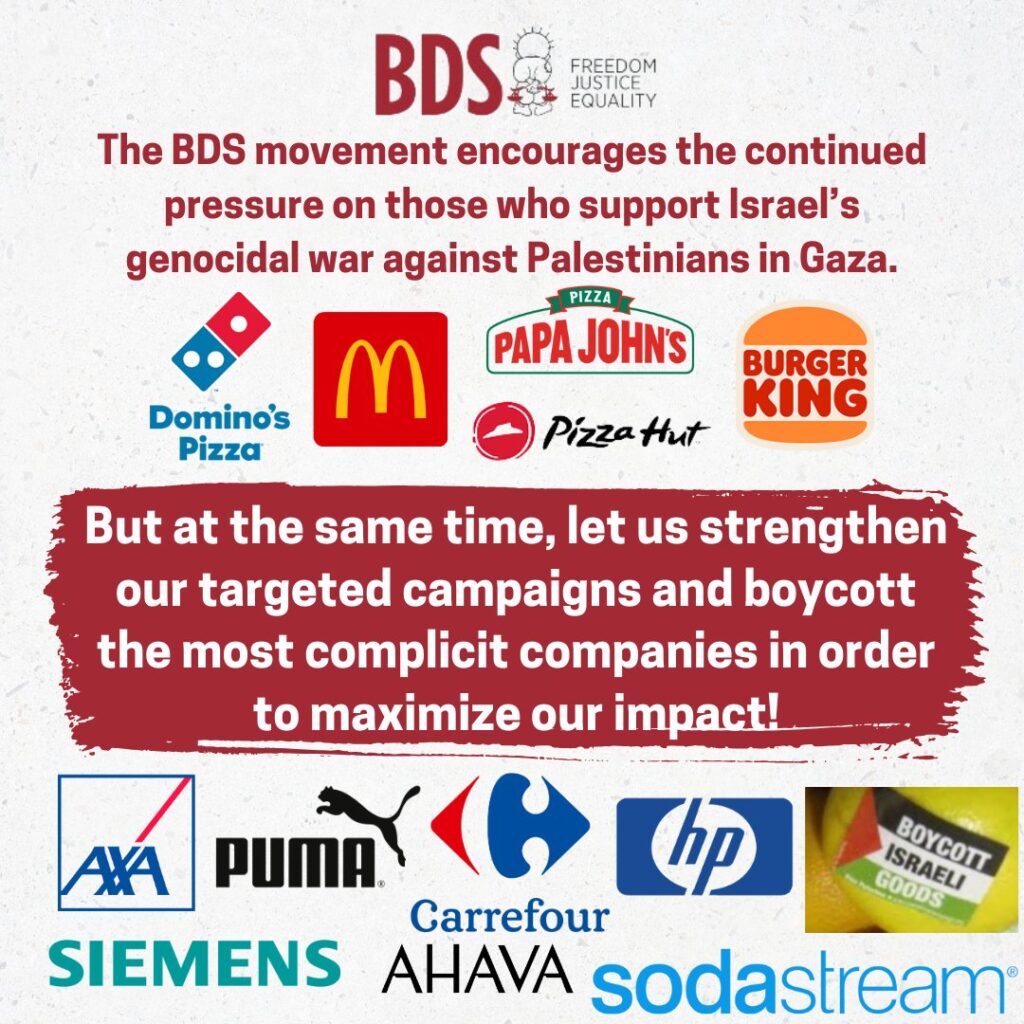The Boycott, Divestment, and Sanctions (BDS) Movement: Assessing Its Effectiveness in Supporting Palestine

Photo Credits: X
By: Joanna Sawtari / Arab America Contributing Writer
On the Rise
In recent years, the Boycott, Divestment, and Sanctions (BDS) movement has emerged as a prominent force in advocating for Palestinian rights and challenging Israeli policies. Born out of a grassroots movement, BDS aims to place economic and political pressure on Israel to end its occupation of Palestinian territories, grant equal rights to Palestinian citizens of Israel, and respect the right of return for Palestinian refugees. As the movement gains traction worldwide, questions arise regarding its effectiveness in achieving its goals. Is boycotting Starbucks and McDonalds actually an impactful way to take a stance against Zionism?
A Long Road
On January 7, 2018, Israeli leaders published a blacklist of groups linked to BDS who were denied entry into Israel. This was part of Israel’s effort to counter BDS, since they presumably viewed it as a serious diplomatic threat.
The inspiration for this movement stemmed from international sanctions on South Africa that helped end apartheid. It has a similar premise to South Africa’s movement; putting an end to the ongoing occupation and white settler colonialism on Palestinian land.
Changes since October 7th
Amid growing global awareness of the challenging circumstances faced by Palestinians, the BDS movement has gained significant momentum, fueled in part by the amplifying effect of social media. As a result, individuals across the globe are actively participating in the movement, choosing to boycott major corporations like Starbucks, McDonald’s, and Coca-Cola. This shift in consumer behavior has placed a renewed emphasis on supporting Palestinian-owned businesses, with Philz Coffee emerging as a prominent example within the coffee shop landscape.

Photo Credits: WRVO
So, is it working?
Some baristas at Starbucks claim that there are significantly fewer customers in their stores, showing that the boycott is effective. This is also seen in the company’s stocks, which plummeted for a short time period but slowly began to rise after holiday drinks were released. In the Middle East, the boycott has been particularly effective, with several Starbucks branches permanently closing in Egypt, and other empty branches particularly in Kuwait and Qatar.

Photo Credits: Palestinian-owned Philz Coffee
Check out our blog here!









